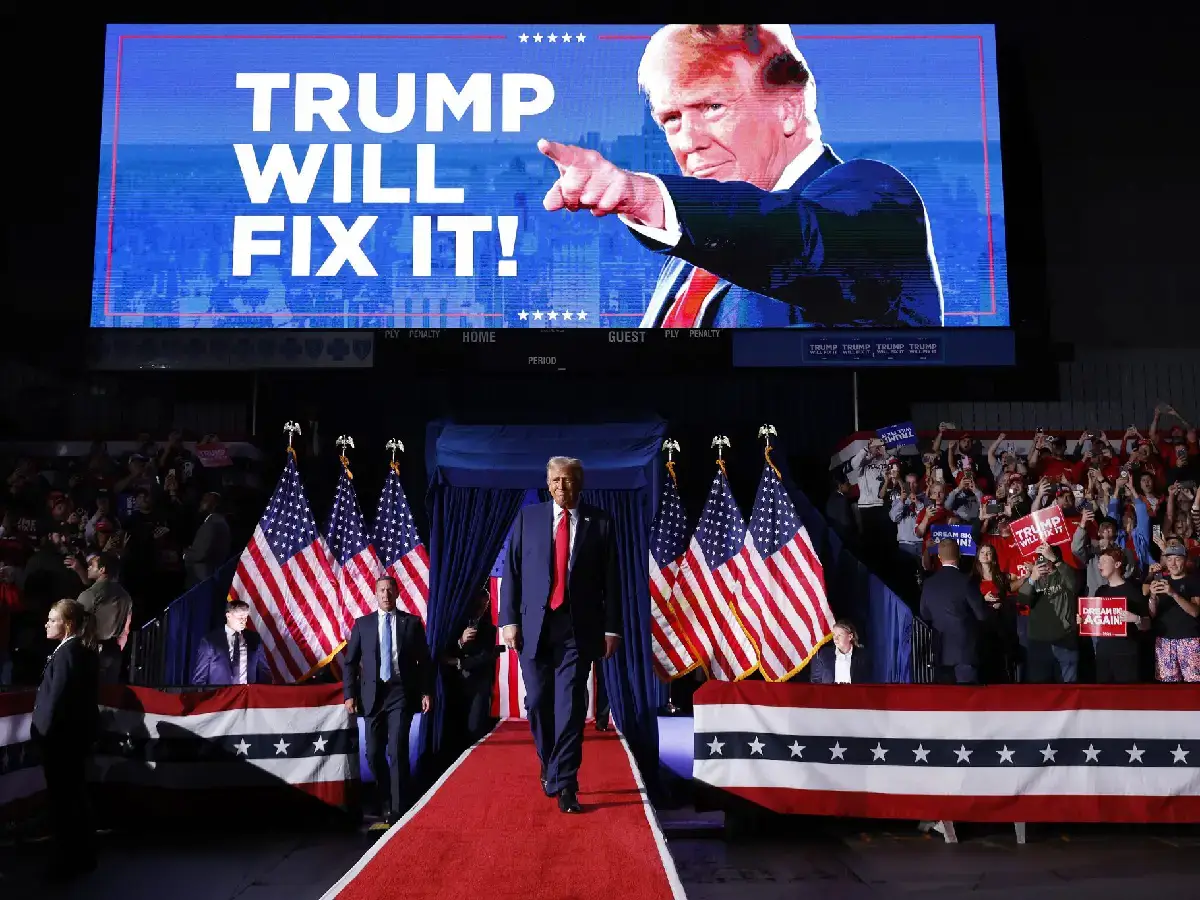President Trump’s recent implementation of tariffs has significantly jumbled the traditional Republican economic strategy, which has historically leaned heavily on the pillars of tax cuts and economic expansion.
Historically, the Republican party has championed economic policies focused on deregulation, tax reductions, and promoting free trade as core components of economic growth and stability. However, with the Trump administration’s inclination towards protectionist policies, including the imposition of tariffs on steel and aluminum imports, this longstanding blueprint faces a complex challenge, sparking robust debates within the party and across the economic landscape of the United States.
The tariffs, purportedly aimed at bolstering the U.S. steel and aluminum industries and reducing reliance on foreign imports, have led to mixed reactions. Proponents argue that these measures will revive American manufacturing and secure jobs. Meanwhile, critics warn of potential trade wars, increased costs for manufacturers relying on imported materials, and retaliatory tariffs from affected countries that could harm other sectors of the U.S. economy, such as agriculture and tech.
The discord regarding tariffs extends beyond economic implications to ideological disputes within the Republican Party itself. Traditionalists who favor free-market policies view tariffs as a distortion of market mechanisms and antithetical to free trade principles that the party has traditionally supported. Conversely, a new wave of economic nationalism among some Republicans supports the use of tariffs as a tool to protect American industries from unfair foreign competition and to promote domestic job growth.
As the debate rages within the party, the broader economic plans centered on the recently enacted significant tax overhauls are also under scrutiny. The tax reform that was expected to be the cornerstone of economic growth under the Republican agenda now shares the spotlight with trade policies that could potentially dampen the positive effects envisaged from tax cuts. Economists and business leaders have expressed concerns about how the tariffs could lead to higher costs and tighter supplies, which might slow down growth and counteract the benefits of the tax cuts.
Moreover, the uncertainty surrounding trade policies could lead to hesitations in investments. Businesses thrive on predictability, which allows for strategic planning and investment in growth. The current unpredictable trade environment could lead firms to delay or reduce investment due to potential risks associated with an escalating trade war.
The repercussions of the tariff implementation are also felt on the global stage where the perception of the U.S. as a promoter of global free trade is shifting. Traditional allies and trading partners react cautiously, as the foundational principles of mutual benefit in trade relationships appear to be shifting towards unilateral action by the U.S. administration.
As President Trump navigates through these economic policy shifts, the Republican Party finds itself at a crossroads. How they resolve these conflicts between traditional economic principles and the new protectionist approach could define their identity and effectiveness in shaping American economic policy in the coming years. The challenge lies in balancing the immediate benefits of protectionist measures with the long-term growth agenda centered on openness and free trade. This balance is crucial not just for the party’s coherence but also for the overall health of the U.S. economy.










